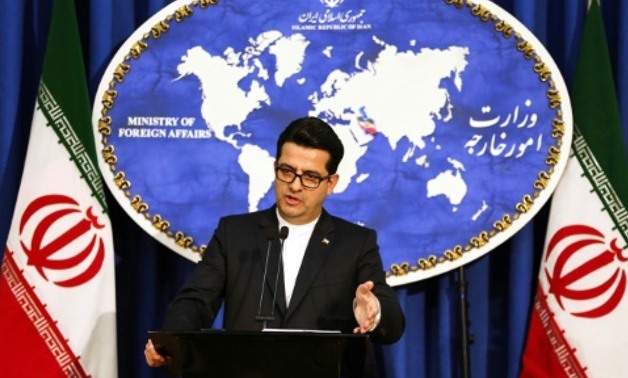
Iran foreign ministry spokesman Abbas Mousavi - AFP
CAIRO - 28 May 2019: “Iran does not look forward to any negotiations with the United States at present, and is not interested in the statements of Trump. What is important is a change in the behavior and approach of the United States,” Spokesperson of the Iranian Foreign Ministry Abbas Mousavi stated on Tuesday in a press conference.
That was in response to the statements of U.S. President Donald Trump in Japan as he said, Iran “has the chance to be a great country with the same leadership. We are not looking for regime change...We are looking for no nuclear weapons...I really believe that Iran would like to make a deal, and I think that’s very smart of them, and I think that’s a possibility to happen.” The statements took place in a joint press conference with Japanese Prime Minister Shenzo Abe held on Monday.
Attempts to Reach Non-aggression Agreement
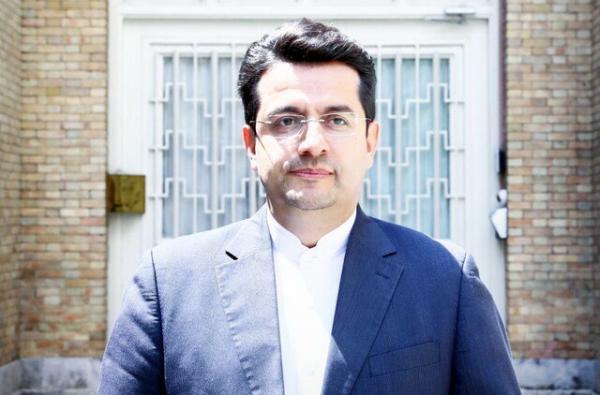
Spokesperson of the Iranian Foreign Ministry Abbas Mousavi - CC via Wikimedia Commons/Salemehdi
“The Iranian diplomacy entered a new era. The Iranian foreign minister will hold talks with other countries within weeks...South Gulf countries are of the most important neighboring countries so the idea of signing a non-aggression agreement with them is not recent. It has been proposed before by the foreign minister within (Iranian calls for establishing a) regional dialogue forum...Our state seeks to relieve tension in the region. Thus, we put forward the non-aggression proposal with good intentions, and we hope that Gulf countries deal with the proposal with good intentions,” Mosoy said as reported by Russia Today Arabic.
Iranian Ambassador to France Bahram Ghasemi said in a conference on reducing tensions in the Gulf that was held in Paris that the use of nuclear weapons does not belong in the Iranian defense creed. In the past years, Iran expressed several times its openness to conclude a non-aggression agreement with Gulf states in order to build trust and help eliminate fears fueled by “others,” the ambassador said as reported by Russia Today Arabic.
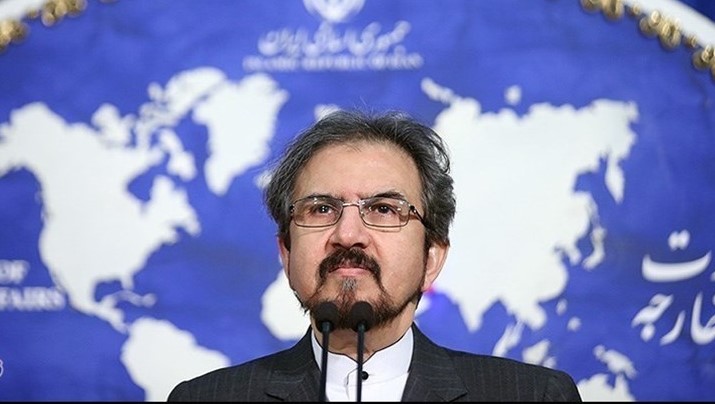
Iranian Ambassador to France Bahram Ghasemi - CC via Wikimedia Commons/Meghdad Madadi
Spokesperson of the Iranian Supreme National Security Council Kayvan Khosravi affirmed that Iran, as stated by the council and by Iranian President Hassan Rouhani, will consecutively and gradually suspend its commitments in the nuclear deal until selling oil and bank transactions return to their status before the U.S. pulled out unilaterally from the deal, according to Russia Today Arabic.
Impact of U.S. Sanctions
Iranian Petroleum Minister Bijan Namdar Zangeneh stated on Tuesday that U.S. sanctions are the reason behind China’s procrastination of continuing to develop the South Pars gas field. Last year, the Iranian government announced that the China National Offshore Oil Corporation (CNOOC) would operate the 11th phase of the field after Total S.A. had pulled out in fear of U.S. sanctions.
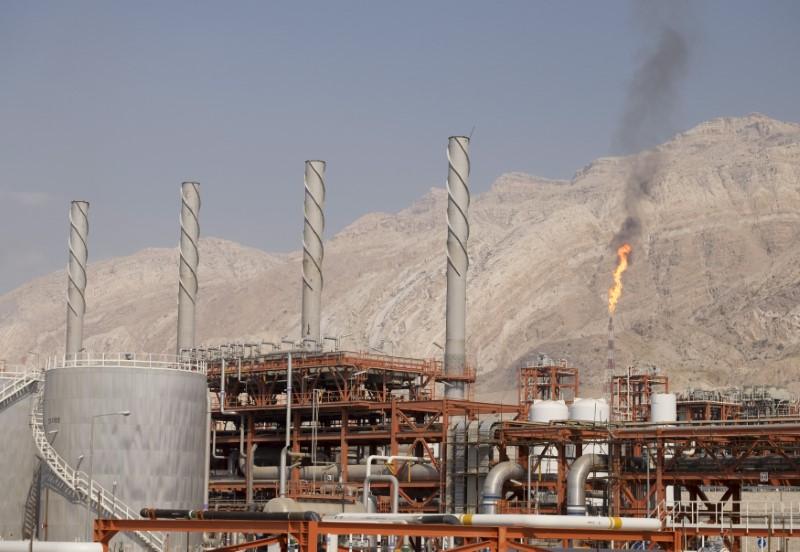
FILE PHOTO: A general view shows a unit of South Pars Gas field in Asalouyeh Seaport, north of Persian Gulf, Iran November 19, 2015. REUTERS/Raheb Homavandi/TIMA/File Photo
Reuters reported earlier this month that Iran wants to export at least 1.5 million oil barrels per day as a condition to not pull out the Joint Comprehensive Plan of Action (JCPOA). The deal was signed in 2015 by Iran, the permanent members of the UN Security Council, and Germany to curb the first’s nuclear program.
In November, the United States reimposed sanctions on Iran’s oil exports after declaring earlier that it had unilaterally pulled out the deal. In May, the six-month waivers granted to top importers of Iranian oil expired. Waivers were granted to eight countries that are China, India, Italy, Greece, Japan, South Korea, Taiwan and Turkey. Consequently, Iran has threatened to block the Strait of Hormuz, which is a major shipping route of Gulf oil.
Since the sanctions went into force, Iran oil exports have more than halved to one million barrels per day or less from “a peak of” 2.8 million barrels per day last year, and “could drop to as low as 500,000 barrels per day from May,” as reported by Reuters.
Suspicious Attacks
Four ships, including two Saudi oil tankers, were sabotaged mid-May in an Emirati seaport. An initial assessment reportedly estimated that Iran stands behind the incident where explosives were used. Few days later, a drone limited attack targeted two Aramco oil pumping stations located in Al Dawadmi and Afif cities.
CAIRO - 14 May 2019: A U.S. official told Time on Monday that an initial assessment by an American military team estimates that Iran or its proxies used explosives "to blow large holes" in four ships anchored in UAE's Fujairah port.
The aircraft carrier strike group, USS Abraham Lincoln (CVN-72), left the Mediterranean and joined the U.S. 5th Fleet near Yemen in the Red Sea after the attack earlier than planned upon a White House directive. That is “due to provocative behavior from Iran and new intelligence estimates,” according to U.S. Naval Institute News (USIN) website.
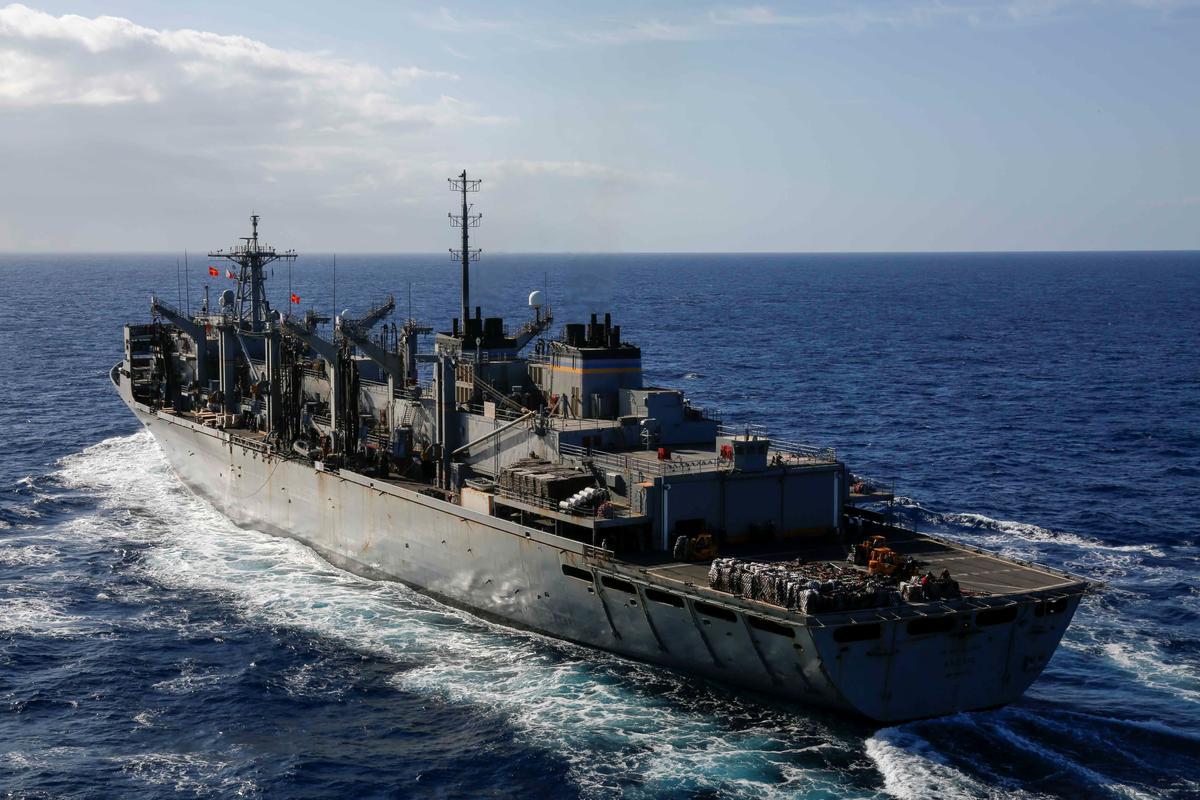
The fast combat support ship USNS Arctic pulls alongside the Nimitz-class aircraft carrier USS Abraham Lincoln to conduct a replenishment-at-sea in the Mediterranean Sea, May 8, 2019. Michael Singley/U.S. Navy/Handout via REUTERS
Tensions
Spokesperson of the Iranian Revolutionary Guard Corp (IRGC) Sherif Ramadan told Russia Today, “ Iran has responded by self-control to some acts by neighboring countries, and has never committed aggression acts against any state since the success of the revolution. Our military abilities are deployed to face the American and Israeli enemies. We seek to achieve peace and friendship with the region’s states. However, if neighboring countries turn into a tool of aggression against Iran, Iran’s policy on them will change.”
“The Revolutionary Guard (Corp) will respond to any aggression. We are ready to defend our country and we do not fear threats. We are not after war but we are not scared of it. We are certain that the victorious in such encounter is the party that possesses the most solid willpower. We monitor the movements of the U.S. forces in the Gulf concurrently. They did not reinforce their existence as much as they did in the past,” the IRGC spokesperson added.
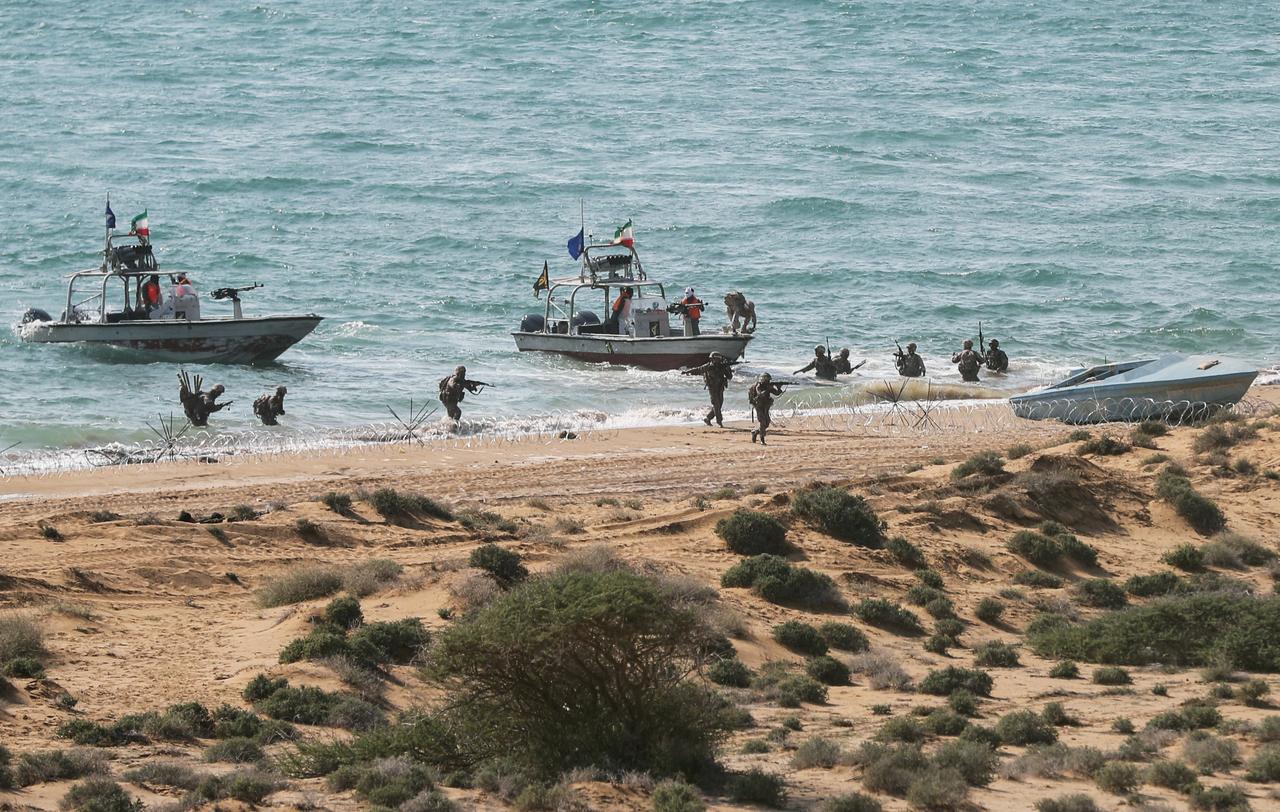
Military units of the IRGC Ground Force are seen as they launched war games in the Gulf, December 22, 2018. Hamed Malekpour/Tasnim News Agency via REUTERS ATTENTION EDITORS - THIS IMAGE WAS PROVIDED BY A THIRD PARTY.
“The U.S. forces have become more polite in their replies to the questions of the Revolutionary Guard (Corp) while passing through Hormuz Strait. We have not witnessed any change in the rhythm or the behavior of the U.S. forces. The Iranian Navy is ready for all scenarios. We are capable of securing the Gulf and Hormuz Strait,” Ramadan Elaborated.
In April, the IRGC was designated a terrorist organization by the United States becoming the first ever state institution put on a terror list. The U.S. law authorizes the Secretary of State to designate foreign terrorist organizations without the approval of the Congress based on classified information that may not be revealed unless for judicial review purposes.
Iraqi Prime Minister announced on Tuesday two visits that will take place soon to the United States and Iran to discuss regional affairs in light of the tensions between both countries.





Comments
Leave a Comment